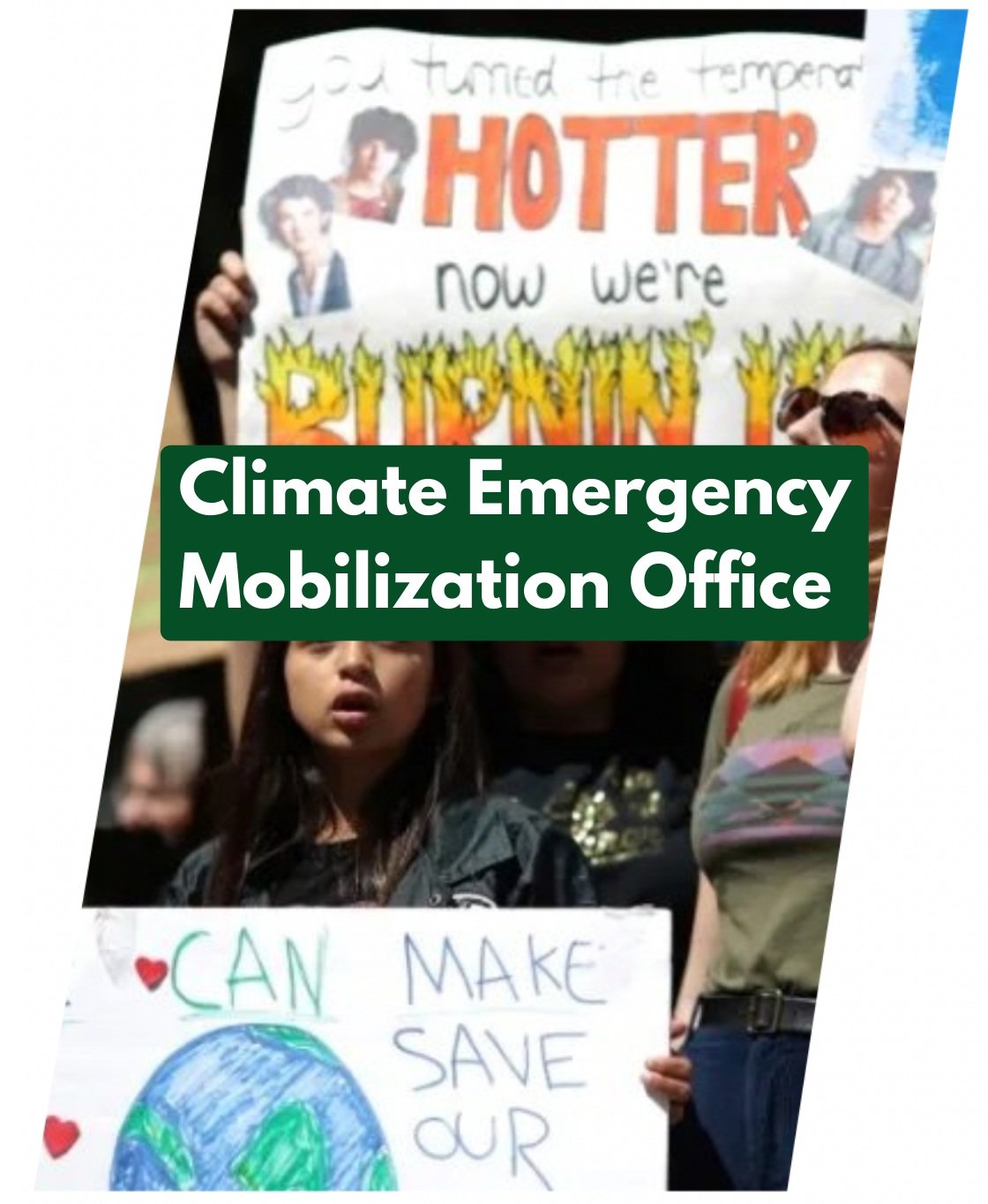
I Get Shit Done.
Over my decade as Senior Climate, Water, and Environmental Advisor to indomitable Los Angeles City Council Member Paul Koretz, I've built a legacy of unwavering environmental stewardship and transformative policy enactment.
Here's a glimpse into some of our resounding achievements that helped propel L.A. into the vanguard of the global green revolution.
-
I was eight the first time I saw the Navajo Generating Station blowing smog across the Grand Canyon. I hated that plant. And I got to help shut it down. I’m always planning the long game, with focus, intention, and a gila monster approach (a gila monster never lets go)
Objective:
As I was working the neighborhood councils for the plastic bag ban, I met Kent Minault, a dedicated and highly-effective volunteer from the Sierra Club. We started working together. I advocated for getting L.A. Beyond Coal; he advocated for the plastic bag ban. Teamwork! The rest is history.
Council Member Koretz became the first L.A. City Council Member to call for Los Angeles to end its use of coal power. The Department of Water and Power told us it would never happen. Together, in close partnership with the local advocates, we made it happen. Collaboration and trust-building are essential to all of my wins.
In 2014, we introduced a groundbreaking motion to significantly reduce carbon pollution in the city by 80 percent below 1990 levels by 2050. While today, this seems like a minor goal, this marked the first such initiative in a major U.S. city. We aimed to lead the way in promoting a low carbon, resilient future, with a specific focus of the impact on low-income communities and communities of color. The dominoes started to fall.
Impact:
In 2017, the essential dominoes toppled as Arizona’s SRP followed LA’s divestment lead and opted for closure.
In 2019, the last one fell as we succeeded with demolition of the Navajo Generating Plant—the largest coal-producing plant in the Western U.S.
We also worked to halt the L.A. Department of Water and Power from repowering its coastal power plants with methane gas. While our effort, in partnership with Food & Water Watch and Mayor Garcetti, was politically successful, the utility proved once again that, at the end of the day, they don’t actually understand the severity of the climate situation.
I was one of the leaders of the L.A. DWP 100% Clean Energy working group. We got them from 2045 to 2035.
“By supporting EPA’s historic action, and going above and beyond what’s required to reduce our carbon footprint, Los Angeles is once again positioning itself as a national leader in the fight to curb climate disruption.”
— Evan Gillespie, Western Region Deputy Director with the Sierra Club’s Beyond Coal Campaign
Sources:
City of Los Angeles vows support for Clean Air Act by Mo
After decades of activism, the Navajo coal plant has been demolished - Vox by Jariel Avin tex
-
Objective:
In 2021 we authored a motion to decarbonize all buildings in LA, to make all new buildings in the city of Los Angeles zero carbon by 2030 and to decarbonize all existing buildings by 2050.
Impact:
The motion acknowledged that many well-intended policies fail to recognize that the burden of climate change is often placed on our most vulnerable communities. Because of the disparity of access to energy efficiency programs, low-income communities often end up bearing the brunt of higher energy bills and compromised air quality. This motion calls for a more equitable decarbonization program as led by our justice-focused Climate Emergency Mobilization Office.
“It means that we are centering the communities most in need, who live in the most pollution-burdened areas of Los Angeles and constitute the majority of the residents, because climate solutions must include allthe members of our community or our efforts will surely fail”
—Los Angeles’ Climate Mobilization Director Marta Segura
Sources:
Officials Announce First Steps Toward Decarbonizing LA Buildings - Los Angeles, CA Patch
-
Objective:
2010: Then-CA Assembly member Julia Brownley introduced legislation to ban plastic bags statewide. It failed, barely. I stepped in to say, “screw you, plastics industry,” and committed to getting this passed in L.A. no matter what. I thought it would take a few months—it took me two years.
Impact:
I got over 27 of L.A.’s most strategically-located neighborhood councils and oodles of orgs to send in letters of support, swayed the City Council, knocked down the plastics industry’s b.s. talking points, and won the day. We finished the plastic bag ban legislation in L.A. and we didn’t stop there.
“Heal the Bay” presented me with their 2011 Super Healer Award for my efforts. CM Koretz hired me.
"In our small, land-locked valley, we cannot disconnect ourselves from a whale hundreds of miles up the coast starved to death by plastic bags and other trash"
—Ojai Balley Green Coalition Executive Director Deborah Pendry
Sources:
-
Objective:
In 2016 we set out to support and comply with Senate Bill 1383 to reduce emissions and organic waste by 75% by 2025.
Impact:
LA City Council passed the motion I authored on behalf of Council Member Koretz aimed at expanding our residential organics collection program from the current 18,000 customers to 750,000 customers.
Sources:
Los Angeles City Council Votes to Expand Food WLos
"LA Sanitation will aim to collect food waste"LA Sanitation will aim to collect food waste from 7
-
My allies and colleagues leading local environmental justice organizations and I started musing about how to fix the massive schism between traditional environmental groups, labor groups, and organizations fighting for those on the frontlines of climate breakdown: low-income BIPOC communities and labor communities that were too often most impacted by climate policy-making. That is, in trying to fix one problem, we were creating others and needed to stop.
Inspired by the Leap Manifesto, a transformative document drafted in Canada in 2015 by Naomi Klein and a broad coalition of progressive thinkers, and also by the speed and scale of the problem, we sought to enact a Leap Manifesto in Los Angeles.
It was harder than it looked.
Shutting down the Navajo Generating Station was an enormous win for the climate and community organizing. That plant and coal mine were responsible for an inordinate amount of air and water pollution inflicted upon the Indigenous lands of the Navajo and the Hopi.
But an even bigger tragedy may have occurred from closing down the Generating Station and the Kayenta Coal mine which fed it: The closure eliminated 800 Indigenous jobs in a region with limited economic opportunities. And—ready for the kicker—the Navajo and Hopi Nations did not receive any power from that generating station. Many, if not most, still live without electricity or running water. As we continued to address the climate crisis, we needed a whole new approach so that Los Angeles would not be the center of the extractive economy, but the center of a new holistic approach… a living economy in which everybody benefits from the positive steps we are taking.
After the horrific wildfires of 2018, partnering with the LEAP L.A. Coalition, we introduced a motion to create a Climate Emergency Mobilization Office.
Los Angeles has taken a historic step by establishing the world's first Climate Emergency Mobilization Office and Commission. The office's mission is to address local impacts, including wildfires, floods, pollution, and toxic waste. It’s also dedicated to supporting those displaced by climate-related crises.
Impact:
This was a challenging, important project that helped position L.A. as the first city in the world to take this level of complex, ambitious action to mitigate the impact of the climate crisis across all social strata. The office successfully launched in 2021 with the support of former Mayor Eric Garcetti.
The launch of our Climate Emergency Mobilization Office legislation inspired the City of Berkeley to declare a climate emergency, followed by Richmond, then a number of cities in the North Bay, including Petaluma, Sebastopol and the rest of Sonoma County. Followed by London, England, and New York City. Now, over 2,356 municipalities (and counting) have declared climate emergencies in our wake (out of 10,000 cities on Earth). I’m not saying we did it all. I’m saying, before L.A. went, there were three… over two years.
“The climate crisis isn't a distant question, but an everyday reality for families, households, businesses, workers, and frontline communities across Los Angeles -- and our Climate Emergency Mobilization Office (CEMO) will be a source of solutions for this generational challenge.'' —Mayor Eric Garcetti
Sources:
Leaping with the Angels, Leaping for the People
LA forms first-ever climate emergency mobilization office
Garcetti Announces Launch of Climate Emergency Mobilization Office - The Breakfast Club
-
Objective:
We introduced the “L.A. City Biodiversity Index" as a crucial tool to assess and enhance the city's ecological health and urban connectivity. By regularly measuring this index, the city plans to promote integrated, sustainable ecosystems and strengthen its resilience in the face of environmental challenges, aligning with its Green New Deal and sustainability initiatives. Our initiative was, of course, the first of its kind on this side of the Pacific.
Impact:
This innovative index has quickly become the gold standard for cities looking to develop their own ecological frameworks, fostering a new wave of environmentally-conscious urban development worldwide as an essential climate tool.
“The creation of this groundbreaking L.A. City Biodiversity Index is the next important step toward comprehensive, holistic wildlife and habitat protection ... [using] evidenced-based science to create policies that emphasize and encourage the interconnectedness of healthy ecosystems and healthy people across L.A. as we move forward into an uncertain climate-changed future.''
— Council Member Paul Koretz
Sources:
Los Angeles Releases Study to Help Measure City's Biodiversity
LA Sanitation & Environment Leads U.S. In Protecting Biodiversity & Measuring Urban Ecosystem Health
-
Objective:
On my first day working for Council Member Koretz, we got a resolution supporting SB 568, a statewide ban on polystyrene food containers, approved by the City Council. It was the first of many state bills we were able to get the Council to weigh in on. However, despite my jumping on a plane to Sacramento and successfully convincing the Senator representing my district in Mar Vista to be the deciding Senate vote to support the bill, and despite a robust effort by our friends at the Thomas Starr King Middle School, and despite a massive effort by my friends at the Surfrider Foundation and Heal the Bay and the entire Statewide Clean Seas Coalition, SB 568 was a hard-fought battle we lost in the State Assembly. One look at all the slimy corporate Styrofoam posters in the Sacramento airport will tell you why.
So Councilmember Koretz and I tried again repeatedly to get a Styrofoam ban. Until we won, our last week in City Hall.
Impact:
The lobbyists won the short game, but we won the long one.
The ordinance prohibits the sale and distribution of expanded polystyrene products for businesses with more than 26 employees beginning in April 2023, and for smaller businesses in April 2024.
“We’re leading by example by committing to zero-waste policies in the operations of the city, and we’re moving forward with some of the boldest local ordinances in the country to reduce single use plastic waste” - Council Member Mitch O’Farrell
Sources:
-
There’s a fairy tale being spread by the fossil fuel industry that we can invent our way out of the looming climate disaster. That we can invent machines large enough to suck up all the greenhouse gas emissions they have emitted. The only sucking sound is their lies.
However, we already DO have the technology to sequester greenhouse gasses… right beneath our feet.
Council Members Paul Koretz and Mike Bonin introduced a motion called RegenerateLA to combat climate change by focusing on carbon sequestration through healthy soil practices. The program aims to harness food waste for composting, improve soil quality, and reduce greenhouse gas emissions, highlighting the role of compost and regenerative agriculture in enhancing sustainability and addressing climate-related challenges in the city.
Impact:
This action will leverage the city's annual 280,000 tons of food waste to facilitate a drawdown of greenhouse gasses from the atmosphere to foster healthy soils for parks and open spaces throughout Los Angeles.
“Los Angeles has the potential to do something that many large cities across the country can follow, and that is to take its organic material waste stream and turn it back into soil. That is actually unique and very special. Los Angeles is very well situated to be an example not only for the country but for the world.”
—Calla Rose Ostrander, Strategic Advisor and Climate Change Communicator at the People, Food & Land Foundation
Sources:
Launching Regenerate LA - Los Angeles’ New Strategy to Give Back to Mother Nature
Urgent climate action can secure a liveable future for all - World Meteorological Organization







